
Freedomway.ca
facebook.com/stefanaarnio
https://twitter.com/stefanaarnio
http://ca.linkedin.com/in/stefanaarnio
Get Stefan Aarnio's book "Money People Deal: The Fastest Way to Real Estate Wealth" at MoneyPeopleDeal.com!
Remember: Please share this article if you found it enjoyable!
Jim Rohn, an american entrepreneur, once said "If you don't design your own life plan, chances are you'll fall into someone else's plan. And guess what they have planned for you? Not much."
I always struggled with the idea of getting a job. Some people call their job a J-O-B which stands for Just, Over, Broke.
From age 17 to 24 I struggled every year with employment. When I was in university, every summer, I had to go out and "get a job" to pay for next year's tuition. Every year I would procrastinate, the idea of a job bored me, and I felt in my heart that I didn't want to work for someone else. Every summer was different, I worked at Tim Hortons, local restaurants, odd painting jobs, and even had a short taste of direct sales. Nothing felt good and every year as the summer would approach I felt myself feeling depressed.
In 2008 when I graduated from university with an Arts degree, the game was over. My parents and society both agreed that it was time to leave the fantasy world of school and join the "real world" and get a "real job".
I had made most of my money in university by teaching guitar lessons out of my mother's living room and had made a good little cash business out of it. I also played numerous music gigs throughout the city and had experienced the life of being self-employed. Now that I was done school it was time to "wake up", shut down my little business and join the real work force.
I followed the advice of my parents, society and the status quo and got a real job in telephone sales. I worked in the middle of the night, on straight commission and although I was one of the top performers in the office, I only made about $10 an hour selling on the phone. My life was completely upside down, I was making less money at my "real job" than I was making it my guitar teaching business, my quality of life was the lowest it had ever been, and I was isolated by working the graveyard shift.
After a few weeks of working my real job, I fell into a depression. Everything I had done was "right". I went to school, got a degree, and got a job, but I was living a miserable life and was making less money than I made in school doing things I enjoyed less.
What was wrong with me?
Looking back, I realize that I was living a life of convenience, not a life of choice. Everything that was in my life came to me by way of convenience. Nothing was consciously chosen by me and this was the source of my unhappiness.
They say there are only two sources of unhappiness in the world:
#1 is not getting what you want
#2 is getting it (not what you want)
When we get something we do not want, unhappiness ensues.
The downward spiral of unhappiness and dissatisfaction continued for years until I learned to take control of my own mind and use it towards endeavours of my choice.
As the great Napoleon Hill writes in his book "Think and Grow Rich":
Everyone comes to this world with the privilege of controlling the power of his mind and directing it to whatever ends he may choose.
At birth, everyone carries the equivalent of two sealed envelopes:
- The RICHES You May Enjoy If You Take Possession Of Your Mind & Direct It To The Ends Of Your Own Choice.
- The PENALTIES You Must Pay If You Neglect To Take Possession Of Your Mind & Direct It
- Health
- Peace Of Mind
- A Labor Of Love Of Your Own Choice
- Freedom From Fear And Worry
- Positive Mental Attitude
- Material Riches Of Your Own Choice & Quantity
- Ill Health
- Fear & Worry
- Indecision & Doubt
- Frustration & Discouragement Throughout Life
- Poverty & Want
- The Evils of Envy, Greed, Jealousy, Anger, Hatred and Superstition
For many years I allowed others to take control of my mind and I drifted through life living a life of convenience with very few elements being of my own choosing. After I hit "the bottom" through depression, poor health, fear, doubt, worry and debt, I began to design the life that I wanted.
Today, I have made drastic changes and every aspect of my life has been chosen by me. Perhaps there are parts that are not 100% of my choosing, but every single aspect is improving steadily towards my vision and my ideals.
All of the improvements in my life came from having a concrete vision of what I desired. I began to write down my goals, my wants, and my vision. I began to reverse engineer and design the life that I wanted. I am very happy to enjoy the blessings that Napoleon Hill names above and be free of the penalties he warns against.
In your own life, ask yourself: Are you living a life of convenience or a life of choice? If you are living a life of convenience, begin to write a vision plan detailing every aspect of your ideal life. When your vision is put into words and written down, the subconscious brain will begin working towards the life of your dreams.
Thanks for reading,
By: Stefan Aarnio
Freedomway.ca
facebook.com/stefanaarnio
https://twitter.com/stefanaarnio
http://ca.linkedin.com/in/stefanaarnio
Get Stefan Aarnio's book "Money People Deal: The Fastest Way to Real Estate Wealth" at MoneyPeopleDeal.com!
Remember: Please share this article if you found it enjoyable!

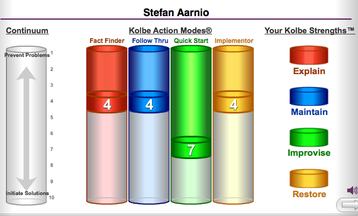

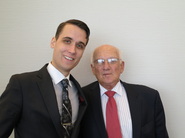
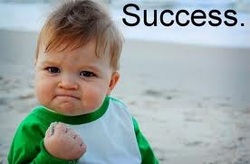

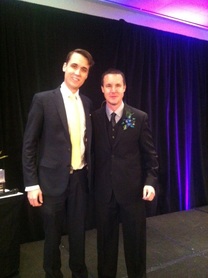
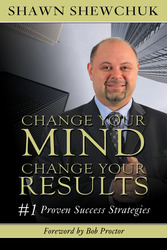


 RSS Feed
RSS Feed

